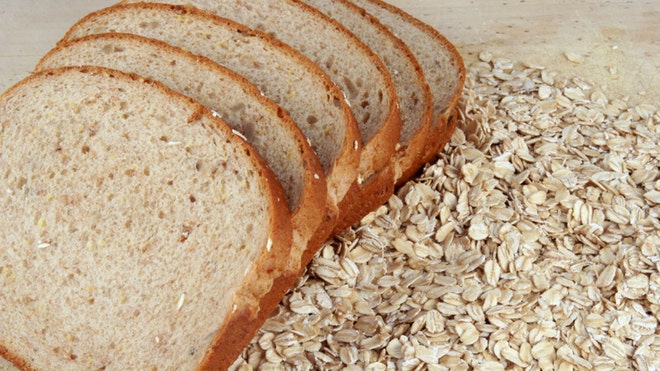What is a Whole Grain?
Grains are divided into 2 subgroups, Whole Grains and Refined Grains.
Whole grains contain the entire grain kernel ― the bran( It contains important antioxidants, B vitamins and fiber), germ(It contains many B vitamins, some protein, minerals, and healthy fats), and endosperm(It contains starchy carbohydrates, proteins and small amounts of vitamins and minerals).
Examples of Whole Grains
Grains provide many nutrients that are vital for the health and maintenance of our bodies.
The nutrients includes dietary fiber, several B vitamins (thiamin, riboflavin, niacin, and folate), and minerals (iron, magnesium, and selenium).
Grains and grain products are important sources of energy, carbohydrate, protein and fibre.
Whole grains contain the entire grain kernel ― the bran( It contains important antioxidants, B vitamins and fiber), germ(It contains many B vitamins, some protein, minerals, and healthy fats), and endosperm(It contains starchy carbohydrates, proteins and small amounts of vitamins and minerals).
Examples of Whole Grains
Whole wheat bread,Oatmeal,Brown rice
Refined grains have been milled, a process that removes the bran and germ. This is done to give grains a finer texture and improve their shelf life, but it also removes dietary fiber, iron, and many B vitamins.In short,the methods of processing grains (e.g. milling) reduces the nutritional value of grains. Processors add back some vitamins and minerals to enrich refined grains.
 |
| Whole Grains |
Examples of Refined Grains
White Rice,White Bread,White Flour
But whole grains with bran,germ and endosperm are more healthier compare to refined grains.
Health benefits of eating Whole Grains
1.Fiber is important for proper bowel function.The fiber in whole grains helps to prevent constipation
and diverticulosis.
2.Fiber-containing foods such as whole grains help provide a feeling of fullness with fewer calories.Thus helps in weight management.
3.Reduces the risk of heart diseases,obesity and type 2 diabetes.
4.Reduces the risk of some chronic diseases.
5.Including whole grains in diet reduces the LDL cholesterol and reduces the risk of cardiovascular diseases.
6.Whole grains are sources of magnesium and selenium. Magnesium is a mineral used in building bones and releasing energy from muscles. Selenium protects cells from oxidation. It is also important for a healthy immune system.
7.The B vitamins thiamin, riboflavin, and niacin play a key role in metabolism – they help the body release energy from protein, fat, and carbohydrates. B vitamins are also essential for a healthy nervous system. Many refined grains are enriched with these B vitamins.



Comments
Post a Comment